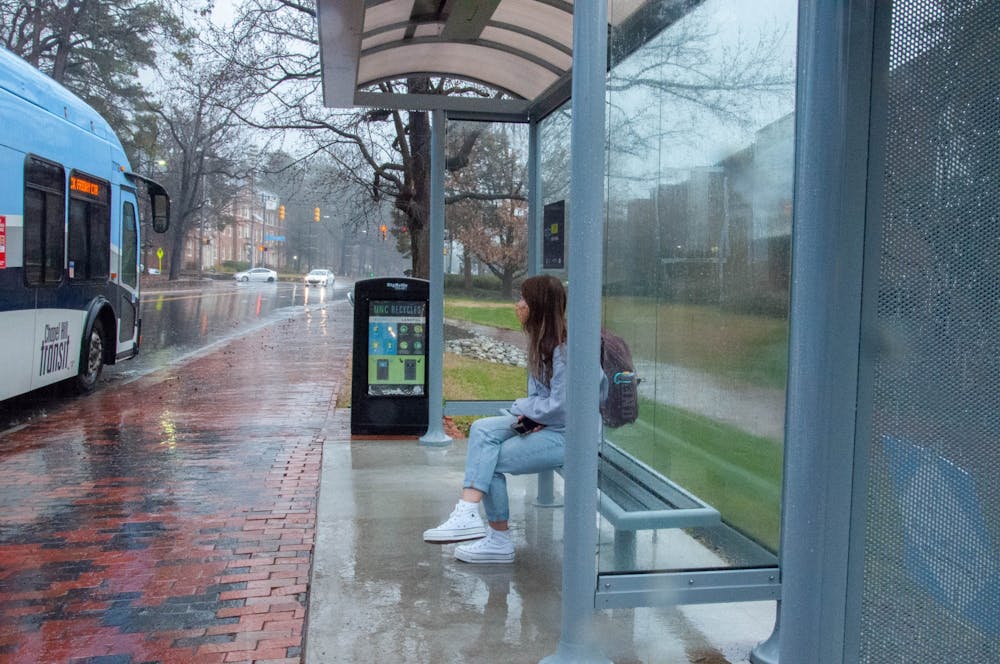Chapel Hill Transit has upgraded 11 bus stops to meet American Disability Act requirements, with eight more in construction and 42 in the design phase.
Three years ago, Chapel Hill Transit assessed the quality and accessibility of its bus stops in order to make sure each stop met ADA requirements. But Chapel Hill Transit discovered many stops did not meet those requirements because most were installed 20 to 25 years ago – before ADA requirements changed.
For example, Brian Litchfield, the Chapel Hill Transit director, said many bus stops in the Chapel Hill-Carrboro area lack sidewalks leading up to the stops, which poses an accessibility issue.
Chapel Hill and Carrboro have exactly 527 bus stops, 100 of which have shelters.
“We have a legal obligation, once we make an improvement, to make sure that it meets the ADA,” Litchfield said. "So we said, well let’s get these done first and make sure they’re right.”
In 2019, Chapel Hill Transit received community feedback from neighborhoods and groups like Chapel Hill's Building Integrated Communities and the Refugee Community Partnership.
Litchfield said based on feedback from the Refugee Community Partnership, Chapel Hill Transit is also adding solar-powered signs to several bus stops that will share information in multiple languages.
Meagan Clawar, program manager at Refugee Community Partnership, said she hopes these changes will help make the stops more accessible.
“A lot of our families have talked to us about just the difficulties of navigating the bus system and so I think these new signs, being able to clearly see when the bus will be coming, having it be pretty simplified and easy for folks to identify what bus they have to take – I think that’s going to hopefully make the process a lot easier for folks," she said.



